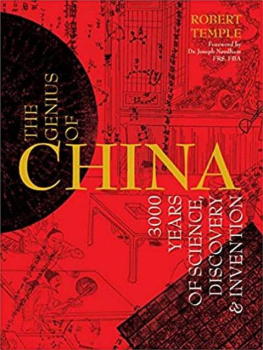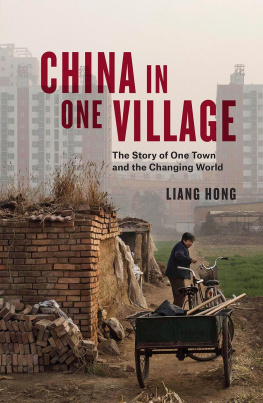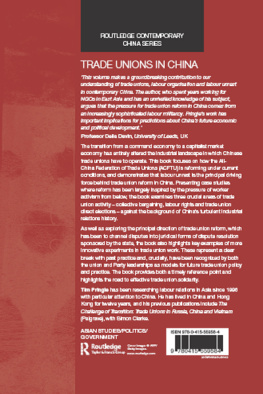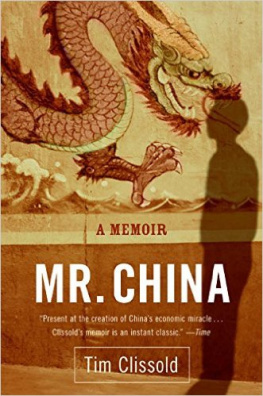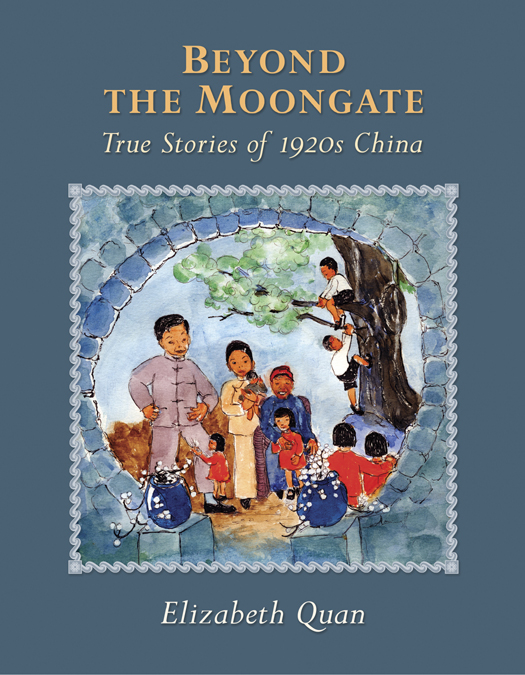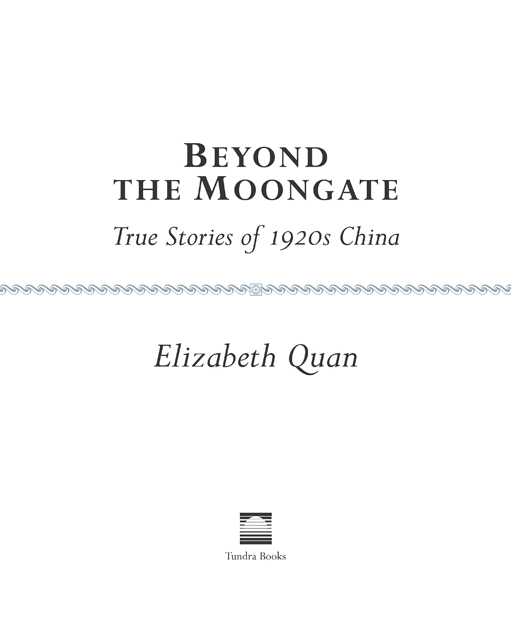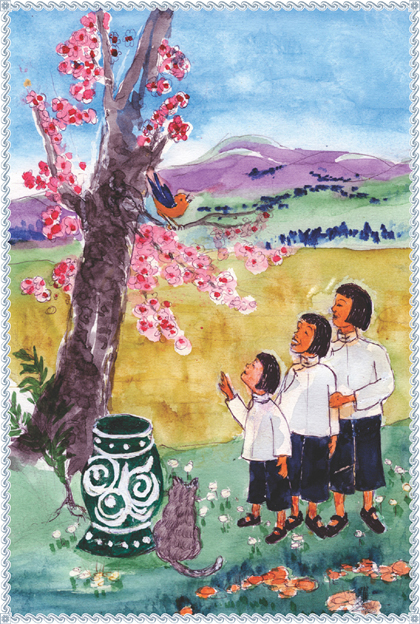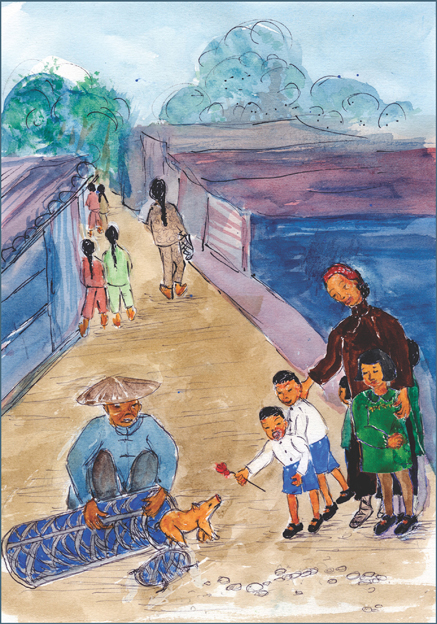Copyright 2013 by Elizabeth Quan
Published in Canada by Tundra Books, a division of Random House of Canada Limited, One Toronto Street, Suite 300, Toronto, Ontario MCV6
Published in the United States by Tundra Books of Northern New York, P.O. Box 1030, Plattsburgh, New York 12901
Library of Congress Control Number: 2012934216
All rights reserved. The use of any part of this publication reproduced, transmitted in any form or by any means, electronic, mechanical, photocopying, recording, or otherwise, or stored in a retrieval system, without the prior written consent of the publisher or, in case of photocopying or other reprographic copying, a licence from the Canadian Copyright Licensing Agency is an infringement of the copyright law.
L IBRARY AND A RCHIVES C ANADA C ATALOGUING IN P UBLICATION
Quan, Elizabeth, 1921
Beyond the moongate / written and illustrated by Elizabeth Quan.
eISBN: 978-1-77049-382-7
1. Quan, Elizabeth, 1921- Travel China Juvenile literature. 2. China Description and travel Juvenile literature. 3. China Social life and customs 1912-1949 Juvenile literature. I. Title.
DS710.Q825 2013 j915.10441 C2012-901554-7
We acknowledge the financial support of the Government of Canada through the Canada Book Fund and that of the Government of Ontario through the Ontario Media Development Corporations Ontario Book Initiative. We further acknowledge the support of the Canada Council for the Arts and the Ontario Arts Council for our publishing program.

Edited by Sue Tate
Designed by Erin Cooper
www.tundrabooks.com
v3.1
To the Lee King family and their descendants
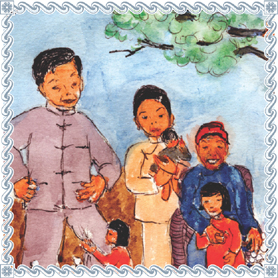
MOONGATES DOTTED THE LANDSCAPE OF OLD CHINA.
Ancient Chinese architects designed round doorways of sculpted stone, with the spiritual symbolism of the full moon. Stepping through one of these doorways was to enter a world of peace and happiness.
And so it was in the 1920s that the Lee King family father, mother, and six children, aged ten months to seven years traveled from their home in Canada, across the Pacific Ocean, to inland China. There, they stepped beyond the moongate into a land not yet touched by technology.
The story of the journey, which lasted one full cycle of the moon, was told in Once Upon a Full Moon. This story, Beyond the Moongate, tells of the two golden years the family spent with Grandmother in a remote village in the south, which hadnt changed for centuries.
Step inside and live the long lazy days of a China forever gone. The moongate beckons.
C ONTENTS
C HINA M ORNING
I sat bolt upright in bed. Where am I? From another part of the house, Papas ringing voice brought it all back.
Yesterday, after a long, long trip from Canada, we arrived at Grandmothers house! Papa kowtowed to his mother to show his deep respect, and her face lit up with joy.
The house was built to accommodate two families, with a shared dining area and an open courtyard. Grandmother used one of the kitchens as her room because she liked to be at the front of the house. For her bed, she placed a board across the brick stove. Dai So, her widowed granddaughter-in-law, had a room at the back, on the other side of the house. Tall, gaunt, and unsmiling, she was a good companion for Grandmother.
Last night, when my older sister, Gerry, and I were led to Dai Sos bedroom, the oil lamps made weird dancing shadows in the dark. You will sleep here, she told us. There was a cot with a tied-back mosquito net that looked quite cozy. I kicked off my shoes and fell into bed.
This morning, Gerry was the first to get up. She showed me the covered earthen pot behind the bedroom door and the wooden basin on a stand in the courtyard. I dipped my fingers into the cold water, then went to the other side of the house to see my family.
And so, my two years in China had begun.
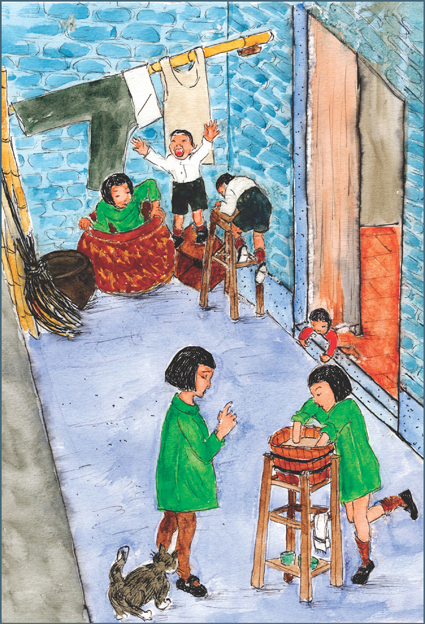
P IGLET C OMES H OME
P opo, as we called Grandmother, rounded up her little puppies, as she called us, to greet her new piglet. There it was out of its cage, beside the adobe house next door. Piglet was wriggling its little pink snout, sniffing its new surroundings.
Every evening after supper, Popo would go among the villagers and collect their table scraps. Then she would boil them up for Piglets meal of the day. How Piglet thrived!
The adobe house, built of sun-dried earth and straw, was the house where Popo had come as a bride and where Papa grew up. The front room contained a simple stone mill and a foot-operated, wooden mortar and pestle for husking and refining rice. My brothers loved to work these primitive machines, creating a great deal of noise and dust. The back room was Piglets.
Lily, George, and Peter aged four, three, and two became Popos new helpers. They would take Piglet out to exercise while Popo cleaned its pen. They all ran about, laughing and squealing with Piglet. Looking on, Popo laughed the loudest.
C LOTHES M ATTER
O ne morning, a group of girls greeted my sisters and me, eager to get a good look at the foreign devil children. They stared at us with great curiosity. When wed first arrived, their grandmothers and mothers had lifted our skirts to see what we wore underneath, but the girls were too shy. They all dressed alike, in loose blouses and pants, their hair neatly braided. One of the older ones had a baby strapped on her back. The girls looked friendly, and I longed to be part of their group.
I knew this would not happen if we continued to wear clothes from Canada. So we begged for new clothes, and Mama and Dai So began a sewing marathon! Soon Gerry, Lily, and I had two new sets of blouse and pants each, stitched entirely by hand.
Later at school, I spilled black ink all down the front of one of my new white blouses. I was promptly sent home. After all her hard work, Dai So was so angry that she punished me by making me squat in the courtyard, scrubbing hopelessly for hours. Wait until your father comes home! she said.



